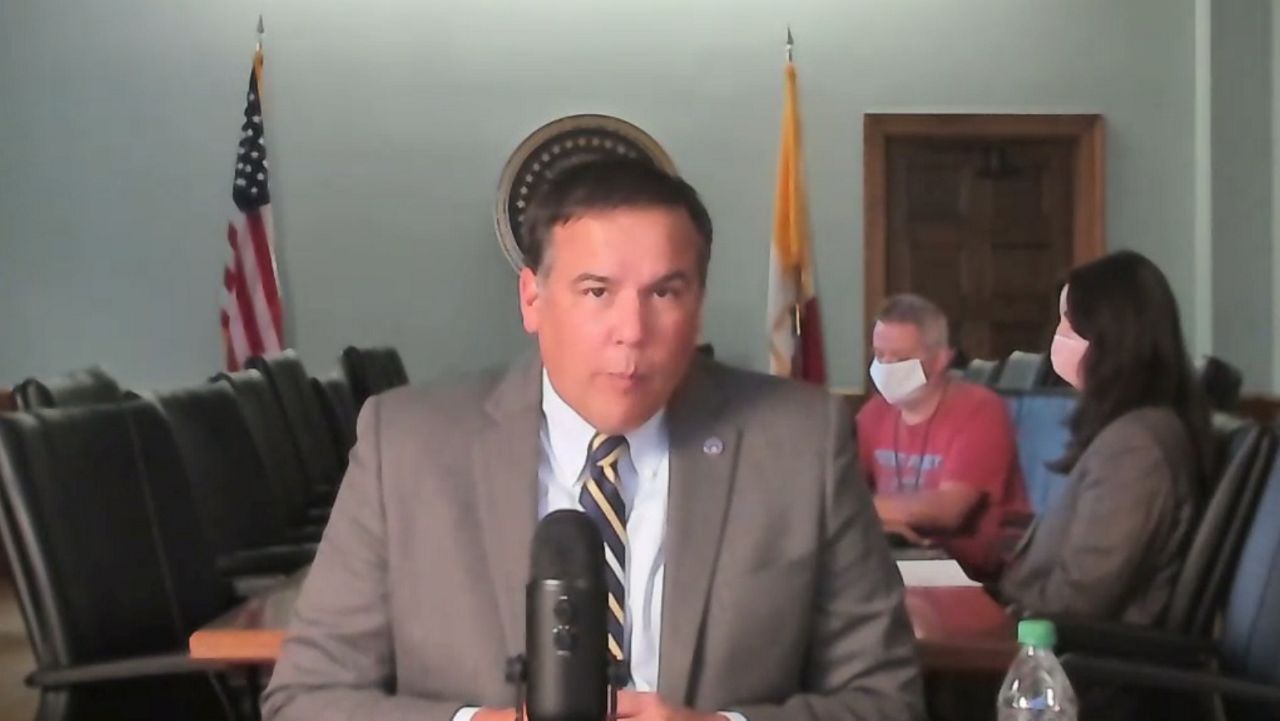COLUMBUS — The city of Columbus and Franklin County will be under a 28-day stay at home advisory beginning Friday at 6 p.m., officials announced Wednesday.
The new advisory urges residents to avoid any unnecessary interactions and only go out for essential activities. The local advisory goes a step beyond the governor’s 10 p.m. – 5 a.m. curfew that was announced Tuesday, officials said.
Restaurants and bars will not be forced to close indoor service at this time, but Mayor Andrew Ginther indicated further actions could come in the following weeks.
The advisory is asking people to go to the grocery store or opt for pick-up or delivery options from restaurants. Residents are encouraged to avoid dining indooors.
The order recommends that residents avoid travel out the state and avoid all private gatherings including weddings and funerals. All higher education institutions are advised to maintain their current learning models but pivot to suspending all extracurricular activities immediately.
The order will tell residents to work from home to maximum extent possible.
“I’m not going to mince words. We have entered a dangerous time in our fight against COVID-19,” Columbus Mayor Andrew Ginther said. “For the first time, our hospitals are near capacity."
Columbus Health Commissioner Dr. Mysheika Roberts said seven-day daily case averages have risen from 143 cases on Oct. 1 to 742 average daily cases now. Hospitalizations in the county are at an all-time high, she said. The posivity rate was 3.7% as of Sept. 20. The positivity rate has since risen to 12.5%.
“We must act now to reduce the number of cases and impact on our hospital systems,” Roberts said. “We must do more now to slow the spread of COVID-19 here in Franklin County.”
Ginther said the actions of residents in the following weeks will determine how long the advisory will last.
“This is not permanent,” said Franklin County Health Commissioner Joe Mazzola. “This is not something that will be with us forever.”
The region has seen an 82% increase in COVID-19 patients in the last two weeks, said Dr. Andrew Thomas, chief clinical officer at Ohio State.
In the coming days and weeks, hospitals will not be able to care for the surging numbers of of patients without ending more elective procedures, Thomas said.



